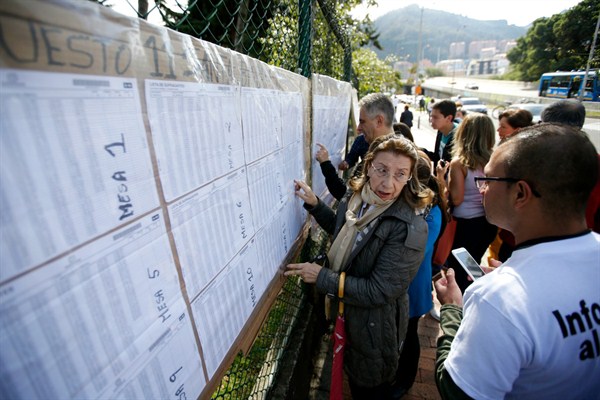Before Colombians voted in congressional and presidential primary elections last Sunday, the front-runner in the race for president, according to early polls, was Gustavo Petro, a former leftist guerrilla fighter and once-mayor of Bogota. But to anyone who thought those numbers meant Colombia was about to take a sharp leftward turn, the election results came as a surprise.
The most startling outcome from the congressional vote was the spectacularly disastrous performance by the FARC, the longtime rebel group that signed a peace deal in 2016, demobilized and entered politics, repurposing its Spanish acronym from the Revolutionary Armed Forces of Colombia to the Revolutionary Alternative Common Force. No one expected a strong showing in the former guerrillas’ first foray into democracy, but their new party underperformed even the lowest expectations, with just 0.34 percent of Senate votes and 0.21 percent for the lower Chamber of Deputies—not enough to win even a single seat in Congress.
The FARC will still get five seats in each chamber, as agreed in the peace deal. But the party’s future is now in doubt. The dismal result also highlights the depths of dissatisfaction with the peace agreement, which Colombians had voted down in a 2016 referendum, but was later approved nonetheless by President Juan Manuel Santos and Congress.

